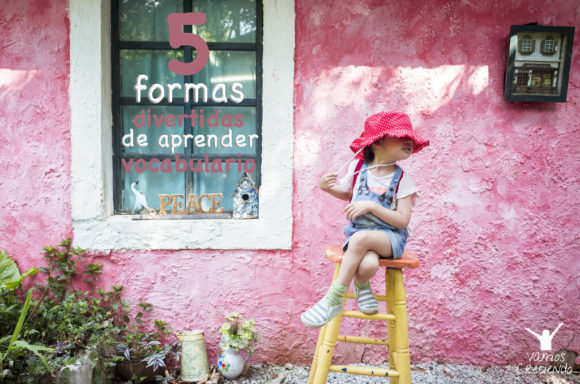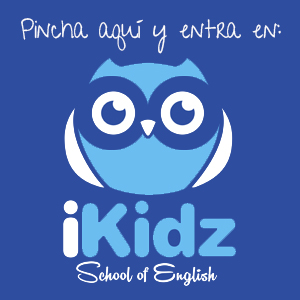
photo credit: BRODY STAR via photopin (license)
The course has already begun, cole the early days have passed and the kids start to get used to the routines that parents blessed you were throwing so much.
For our part, the teachers are deeply involved in the frantic pace of the first week course. looking resources, preparing our classes, and meeting our new students.
This week I decided to write a post about a topic that I think is fundamental when we refer languages: learning new vocabulary. But not learn anyway, 'Learn in a fun way!!
I leave 5 ways to learn vocabulary effectively and fun and, of course, not only in English, in any language.
- 'Singin'!!
The songs are a great way to learn new vocabulary. Me in iKidz no reserve songs just for kids, I assure you also use them with older and love them.
Cantando not only learn new vocabulary. We also learn structures and idioms.
With kids in the house utilizad simple songs, without they are better thematic. In this post I left 68 Songs to learn English.
With older you can complicate it a little more. If you have time, My recommendation is that each song follows trabajéis:
1° Pursue lyrics of some words and Eliminate depending on the level of your students.
2No. Give everyone a copy of the song. Among all id reading it and try to find the missing words. Ask them what kind of word believe is, a verb, a name ... to try to deduce depending on the phrase. I assure you that you are going to laugh a lot trying to find the missing words 😉
3No. Once you have done this first attempt, put the song. I usually put it twice.
4º When all the song comentad if ye were the words they had thought and make a review of the vocabulary they do not know.
5º Put back the song and sing it all together.
- Finger plays.
Sure many of you remember the games we played hands of small. It seems that kids today do not play this sort of thing, but from my point of view is a great way to learn new vocabulary.
On the one hand, usually songs or rhymes easy to learn. For another, play with hands giving a rhythm to the song and makes children aware of what they are are doing.
I leave a video of Dilo in English, in which we explain how to play the game “A sailor went to…”.
- decoding words.
Ideally juguéis by categories so that children find it easier to decode words. For example animals. Dadles 4 codewords, procurad that, at least half of these words are already known to them, and the other half new words you please learn. As we are working animals would: OGD, CWO, TAC y BTRABI, that is to say, dog, cat, cow y rabbit. In this case the word we want to learn is rabbit.
To make them more interesting and motivated you can make groups and competitions. When they have taken the gaming performance you can ask them to create their own word lists and challenge their peers. You will see that quickly learn vocabulary!
- Word race.
Many English words are formed by a root and a prefix, or a root and suffix. This game can give us much time to teach our students new vocabulary.
Divide the class into two parts. In the first explicadles the prefixes that you want to learn, the words are, the type of words, etc.
Later, Prepare a stack of pages with root words, and another stack with prefixes. Make two groups, depending on the number of students that you may have you can do more.
You have to mark where the goal will be and where the starting line. Colocad both groups in the starting line. The first student should carry out the root of a word, when you reach the goal, the turns around and one of his companions runs with the prefix. If you create a word that exists, add one point and another partner with a new root can leave, but should keep trying until they form a word.
If you play well on the patio or outdoor your students will be happy and neither will realize they're in English class 😉
- Pictionary synonyms.
Like the previous game this game can have a lot of variations.
From my point of view it is an ideal game from 7-8 years old. Do teams so that students feel that there is little competition and are more motivated.
One of the team members, for example, He goes to the board and make a simple drawing, of a house, a cat or anything else that comes to mind. Each team must describe the picture, “the house is big”, From this description, the other team has to do the same but with another synonym, “the house is huge", well until one of the teams have no more ideas, then you win the last team that has given its definition.
This is a great way to expand your vocabulary and students playing, on the other hand, learn to make simple descriptions.
I hope these activities will give ideas to help your children and students learn vocabulary in a fun way.
Tell me what they seem and if any variation occurs to you!
Thanks for being there.
A big hug,
Cristina
“Playing for a child is the ability to cut a piece of world and manipulate it.”
Francesco Tonucci
Tags: Learning through play, Songs, english, Game, Words, pictionary, vocabulary, word


 Español
Español English
English Français
Français Deutsch
Deutsch 中文(简体)
中文(简体) Português
Português
